I Dig Sports
Zimbabwe bat with three debutants, Sean Williams out sick
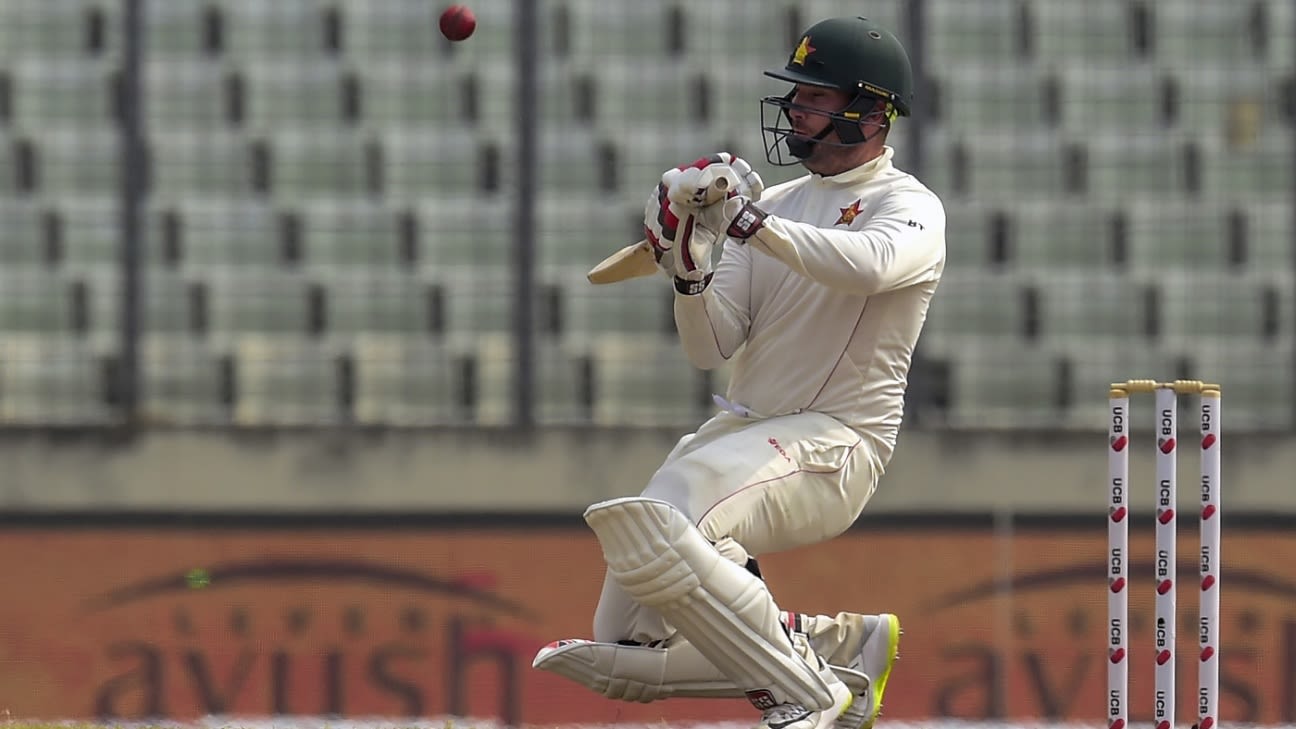
Zimbabwe chose to bat vs Pakistan
Zimbabwe will bat first after winning the toss in Harare in the first of two Test matches. In sunny conditions at the Harare Sports Club, Brendan Taylor, deputising for an injured Sean Williams, said his side wanted to take advantage of the better batting conditions early on, and try to build scoreboard pressure. Roy Kaia comes into the side for his debut Test, while Richard Ngarava edges out Victor Nyauchi in Zimbabwe's first Test against Pakistan in eight years.
Babar Azam's side will try and atone for the last time these two played red-ball cricket, when Zimbabwe ran out surprise winners. They go in with two spinners, with Sajid Khan earning a debut as he looks to operate alongside Nauman Ali. Shaheen Afridi and Hasan Ali are the premier fast bowlers, with Faheem Ashraf the allrounder at No. 7.
It is a chance for Pakistan to pick up a first away Test win under head-coach Misbah-ul-Haq; their last eleven away Tests have seen nine defeats and two rain-affected draws.
Zimbabwe: 1 Prince Masvaure, 2 Kevin Kasuza, 3 Tarisai Musakanda, 4 Brendan Taylor (capt), 5 Milton Shumba, Roy Kaia, Regis Chakabva (wk), Donald Tiripano, Tendai Chisoro, Blessing Muzarabani, Richard Ngarava.
Pakistan: 1 Imran Butt, 2 Abid Ali, 3 Azhar Ali, 4 Babar Azam (capt), 5 Fawad Alam, 6 Mohammad Rizwan (wk), 7 Faheem Ashraf, 8 Nauman Ali, 9 Hasan Ali, 10 Sajid Khan, 11 Shaheen Shah Afridi
Danyal Rasool is a sub-editor at ESPNcricinfo. @Danny61000
Zion on critical non-call: 'Gotta earn my respect'
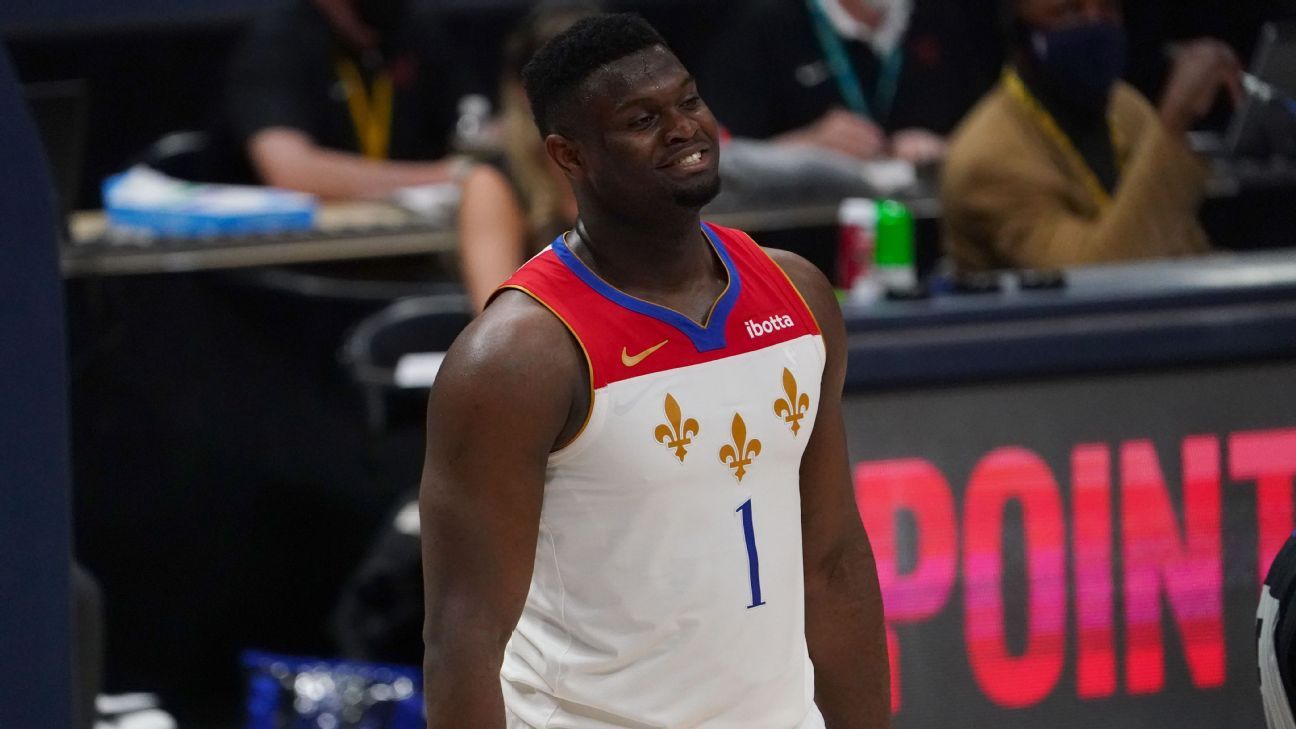
New Orleans Pelicans forward Zion Williamson is second in the NBA in free throw attempts and fourth in the league in free throw attempts per game, but head coach Stan Van Gundy thinks he should be shooting even more.
On Wednesday night against the Denver Nuggets, Williamson had a chance at a dunk to tie the score with 2.2 seconds remaining with a dunk, but the ball was swatted away by MVP candidate Nikola Jokic. Replays showed Jokic making contact with Williamson's hand and head.
Officials did not call a foul on the play, giving Jokic the game-saving block, preventing the Nuggets from blowing a nine-point lead in the final 43.8 and helping to seal a 114-112 victory for Denver.
"I did see the replay, and I saw exactly what you saw," Van Gundy said, alluding to a non-call on a foul.
Williamson said there's "not much I can do" about not getting calls and that he has to learn from it and finish the shot next time.
"I gotta earn my respect," said Williamson, who had 21 points and shot 8-of-17 from the field, only the seventh time this season he has been below .500. "I'm only in Year 2. Gotta get a couple more years under my belt and hopefully things change with that."
A dunk could have sent the game to overtime, erasing a nine-point lead that seemed insurmountable before the Pelicans went on a quick 11-4 run that featured a banked-in 3-pointer by Eric Bledsoe and a backcourt steal and slam by Brandon Ingram.
Down two with 9.9 seconds to go, the Pelicans forced a turnover and had a chance to tie or take the lead. Bledsoe came up with the steal and pushed the ball up court and found Ingram on the wing. Ingram drove to the middle of the lane and found Williamson under the goal, where Jokic was waiting.
"I was there to stop the drive, he shovel-passed to Zion, he went to dunk and I was going hard to just not let him score," Jokic said. "I was aiming for the ball and I was going as hard as I can. Even if it's a foul, don't give him an and-1."
Nuggets forward Paul Millsap, a 15-year veteran, said the final play was one of the craziest finishes he has ever seen during his time in the league.
"But at the end of the day, it doesn't matter," Millsap said. "We got the win."
Ingram said he feels that Williamson "pretty much 10 times out of 10" would finish that play but that things didn't go the Pelicans' way.
"Obviously, all of us thought it was a foul, but the referee saw something different," Ingram said. "At the end of the day, we have to go with what the referee says. I'm sure that's only fuel for him to go harder in the next game and make sure that he's making it known he's getting fouled under the basket and finish strong.
"I'll make that play 100 percent, every time. He might've got fouled, it might've been a blocked shot. It just ended the way it ended."
After Wednesday's games, only Milwaukee Bucks star Giannis Antetokounmpo has attempted more free throws this season than Williamson and only Antetokounmpo, Joel Embiid and Trae Young have gone to the stripe more per game.
Still, Van Gundy thinks Williamson's attempts should be higher.
"He gets to the free throw line a lot, and I've had referees say to me, 'How many free throws has he shot?' and it's a stupid question," Van Gundy said. "It doesn't matter. Call it every single time he gets fouled. That's all your job is.
"It's not a matter of, 'Oh, he shot eight free throws,' or, 'Oh, he shot 10 free throws.' Some nights he should shoot 20. So call it. That's all. Just call it. What more does he have to do to get those calls? I don't know. That's a great question.
"I do think strength gets punished in this league a lot more than quickness. If you're able to go through contact a little bit, it's called differently. If you fall down every time you're hit or you flop, you get calls. That's just the way it is. It's not just Zion, that's just the way it is."
Pelicans guard Lonzo Ball, who finished with 16 points, 12 rebounds and 12 assists for his first triple-double of the season, said Williamson plays through the fouls. Ball said he doesn't know what else Williamson can do to get more calls.
"He's going to the rim every time," Ball said. "There are fouls, they aren't calling them.
"Z can't call his own fouls. It's not pickup basketball. He's just gotta keep going and hopefully the whistle turns for him. But in the meantime, just keep playing hard."
Suns clinch first postseason berth in 11 years
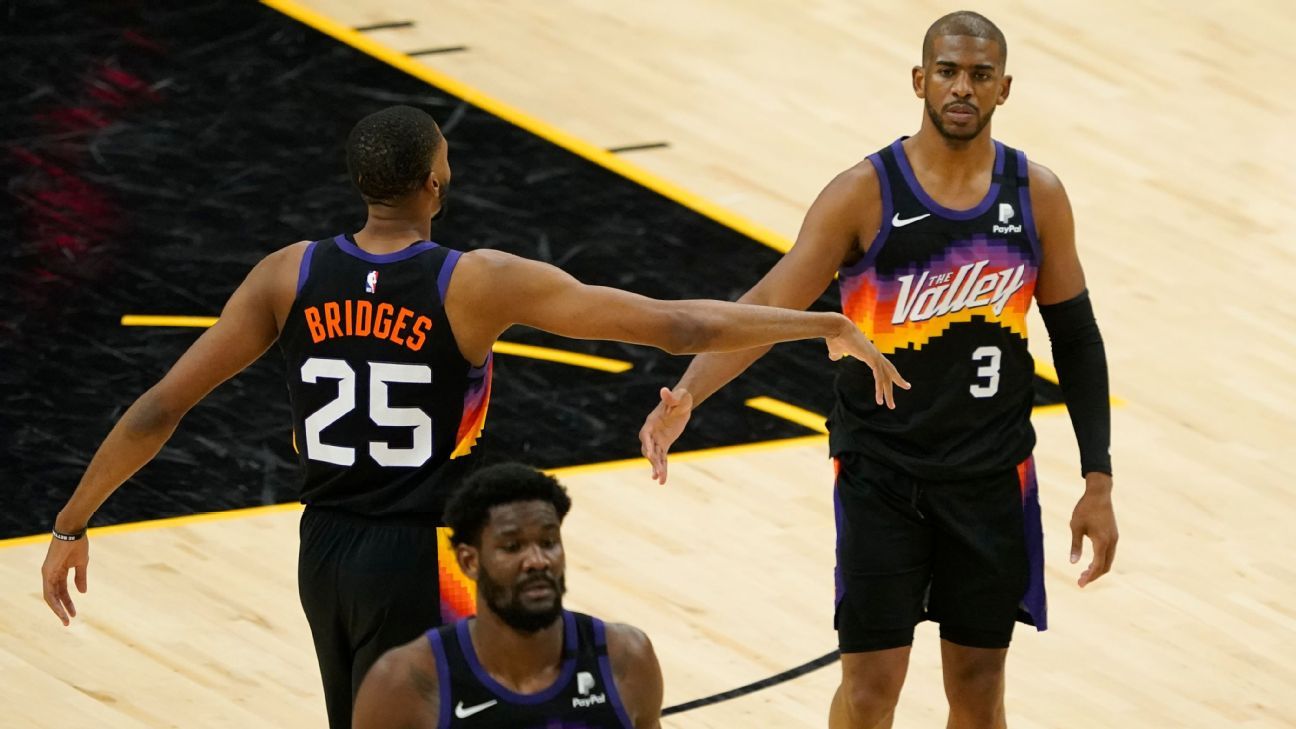
Devin Booker has heard from past Suns players how different Phoenix is when the team is in the playoffs.
Now, the Suns' star guard will finally get to experience the postseason for himself. The Suns ended the second-longest active playoff drought in the NBA when they clinched a postseason berth with a 109-101 win over the LA Clippers at Phoenix Suns Arena on Wednesday night.
The Suns (44-18) have not been to the playoffs since 2010, when Steve Nash was throwing alley-oops to Amar'e Stoudemire. The 10-season drought was tied for fifth longest all time in the NBA.
"It feels great," said Booker, who will experience the playoffs for the first time in his six seasons. "It's been a long time coming. I just shut my mouth for five years."
"Everybody that used to play for the Suns in the past would come through and be like there was a whole different level to it," added Booker, who is on pace to score the ninth-most career points by any player in NBA history before his first playoff appearance, according to Elias Sports Bureau research. "Believe me, I am looking forward to it, packing the place out, hopefully, if we get to that point, and the atmosphere, energy and vibe around the whole city to be up."
As has been the case all season, point guard Chris Paul was a major reason the Suns clinched the a playoff spot on Wednesday. He had 28 points and 10 assists -- and the Clippers had no answer for Paul in the fourth quarter, when he hit 5 of 8 shots and scored 15 points.
When the Clippers were within one point of the Suns, Paul hit a 13-foot fadeaway. He then drove and scored, converted a reverse layup and hit a 17-foot pull-up jumper to give the Suns a seven-point lead with 3:31 remaining.
Clippers forward Paul George, who had 25 points and 10 rebounds and came in averaging 36 points against the Suns in the Clippers' wins in their first two games against Phoenix, declined to answer when asked what makes Paul so tough when he gets going, saying, "Next question."
There have been contentious moments between these two Western Conference contenders all season, with plenty of trash talking, technical fouls, flagrant fouls and ejections.
Wednesday night marked the first time the Suns beat the Clippers (43-21) this season.
During their first encounter, Paul and Booker jawed at George and had to be separated. After the second meeting between the teams, George said he would let the Suns do all the talking, adding, "I don't care who they are or what they're doing."
Paul was serenaded with MVP chants from Suns fans in the building late in Wednesday's contest. He was asked if he knew what he had in this roster when he arrived in Phoenix and the kind of impact he could have.
"I feel like I say this all the time: I know who I am," Paul said. "I knew coming into the situation, I knew who Book was. Book had told me about some of the guys on the team. I knew from playing for Monty [Williams] how detail-oriented he was. Then when I got here, I got a chance to see the culture that they had already built. It's special."
For Paul, this will be his 11th consecutive postseason appearance. The only player with a longer streak entering this season was James Harden (11).
Paul said it "wasn't that hard" to lead the Suns back to the playoffs after their long drought.
"It's the work, you know what I'm saying?" Paul said. "It's the opportunity. As long as you do the work day in and day out, you expect this."
Williams said he appreciates Paul's leadership and that the Suns are heading back to the postseason in just his second year as Suns head coach.
"I had no idea that we'd get here this quickly ... in a short period of time," said Williams, whose team finished 34-39 last season. "Like I told the players just now, more to do, more to come. We are not satisfied. We are not settling."
As Williams added, "We feel like we are just scratching the surface as far as the way we want to play, the way we can play. But this is a huge moment for our organization, a huge moment for the fans in the city and state."
Jacob deGrom's lack of run support might be reaching new lows
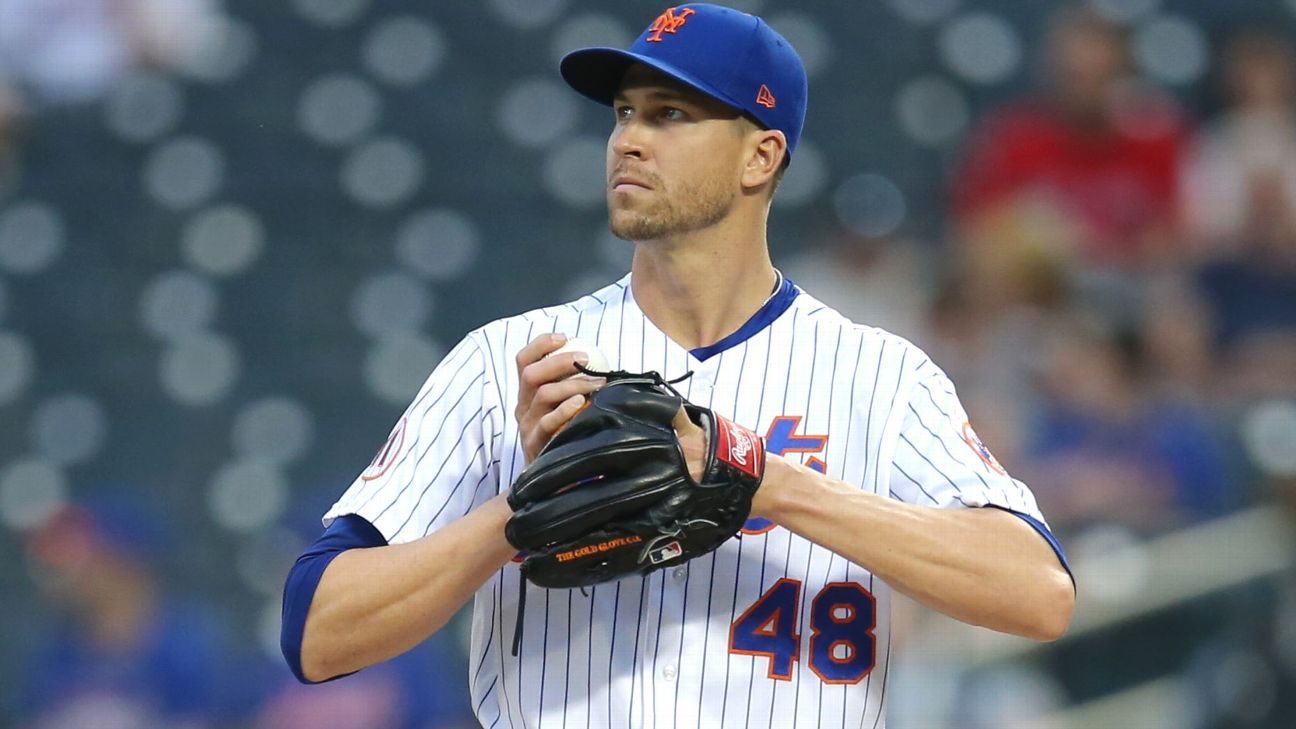
Every Jacob deGrom start these days is a testament to pitching perfection, the most impressive combination of power and command since the peak of Pedro Martinez's Hall of Fame career.
Yet, once again, the New York Mets and their fans were left frustrated Wednesday, able to appreciate deGrom's brilliance but staring at a big fat loss on the scoreboard. The Mets' ace allowed one run over six innings against the Boston Red Sox, striking out nine to run his season total to 59, which matches Nolan Ryan's 1978 mark for most through a pitcher's first five starts of a season.
Unfortunately, that one run was the only one of the ballgame. The visiting Red Sox won 1-0 behind Nick Pivetta -- who is not to be confused with Pedro Martinez or Nolan Ryan -- and three relievers, who combined to strike out 15 batters and allow just two hits. Pivetta was good, the relievers were good, Matt Barnes struck out the side to finish it off -- and a chorus of boos rained down from the stands at Citi Field. The New York fans booed Francisco Lindor for the second straight night, as he went 0-for-3 to see his average drop to .203. They booed Dominic Smith, who went 0-for-4 with three strikeouts to see his average drop to .203. They cheered deGrom.
The lack of run support for deGrom is obviously an ongoing storyline stretching back several seasons. He will finish April 2-2 with a 0.51 ERA. He has now lost two games in which he allowed one run and received a no-decision in a third start when he pitched six scoreless innings. Wednesday marked the third time in three seasons the Mets have lost 1-0 in a deGrom start and the 33rd time in deGrom's career he allowed one run or no runs and failed to pick up the win -- easily the most in the majors since he debuted in 2014. (Julio Teheran is next with 25 such starts in that span.)
Maybe the most amazing part of the lack of offense for deGrom is that since 2018, which includes his Cy Young seasons of 2018 and 2019, he has a 1.99 ERA over 81 starts -- and yet is just 27-21. The Mets are just 38-43 in games he has started since 2018. How are the Mets supposed to win the National League East if they're a .500 team when the best pitcher in the sport takes the mound?
"I try not to think too much about [the lack of run support]," deGrom said after Wednesday's game. "I was more disappointed that I wasn't able to make pitches there in the second inning. ... I was just frustrated not being able to make an adjustment when I needed to."
Indeed, to hear deGrom discuss his outing, he pitched more like Anthony Young, the infamous Mets pitcher who lost 27 games in a row. The Red Sox scored their run in the second, when Xander Bogaerts led off by hitting a 1-0 fastball off the wall in left. It was a difficult play, but a more agile left fielder than Smith might have made the catch. Christian Vazquez knocked Bogaerts in with a one-out double to right-center off a 100 mph, 0-2 fastball up and away. It looked like a great piece of hitting from Vazquez. DeGrom blamed his execution.
Vazquez sends 0-2 deGrom pitch to the gap for game's only run
Christian Vazquez sends a high pitch the other way for an RBI double off Jacob deGrom.
"There in the second, I didn't make pitches when I needed to," deGrom said. "Left the ball over the middle, so Bogaerts hit the double, and just wasn't able to execute on those next few batters to get us out of that spot. Kind of displeased with my mechanics. Last start, it felt really good. This one felt like I was flying open -- everything seemed to be flat."
He said he was mostly disappointed because he felt so good in his previous start, when he fanned 15 in a two-hit shutout of the Washington Nationals, the best start of his career. He said being slightly off Wednesday caused his fastball to sail over the middle of the plate too often, which is why he eventually went to more sliders and changeups. Yes, that's how good deGrom is right now: A disappointing start is allowing one run and striking out nine batters.
The bigger problem for the Mets is that they're struggling to score no matter who is on the mound, ranking last in the majors at 3.0 runs per game. With runners in scoring position, they're hitting .187 with a .542 OPS -- both last in the majors -- a problem that also afflicted them in 2020. The power numbers are also down. They rank last in the majors with one home run every 39.7 at-bats, compared to ranking ninth in 2020 with one every 23.5 at-bats.
"I saw the guys in between today," manager Luis Rojas said. "The approach was just off, late on fastballs, chasing breaking balls, taking pitches in the zone. It was just off. We were just off."
Rojas said he had a pregame talk with Lindor, suggesting the new shortstop needed to be a little more aggressive. Lindor has been drawing walks and making contact, but he hasn't been driving the ball, with just one double and one home run in 19 games. On a pregame Zoom call, Lindor addressed getting booed on Tuesday, something he said never happened when he played for Cleveland.
"It's interesting and it's funny and it sucked," he said. "It doesn't feel right, for sure."
Here's Francisco Lindor's full reaction to being booed by the Citi Field crowd last night: pic.twitter.com/jFRM5u9Jpb
— Anthony DiComo (@AnthonyDiComo) April 28, 2021
Lindor did hit a ball hard in the eighth inning Wednesday, ripping a 95.9 mph line drive that Marwin Gonzalez snared with a leaping grab. To point to Lindor's problems, that was the 25th ball in play this season he's hit at 95-plus mph -- the level considered a hard-hit ball -- but that has produced just eight hits for a .333/.320/.458 line (one of the balls was a sac fly). In 2020, he hit .430/.420/.810 on balls with a 95-plus exit velocity, and in 2019 he hit .549/.541/1.108 on such balls. The two-year trend is certainly worth paying attention to, a sign that he's hitting too many balls on the ground and not enough line drives or big flies.
Still, Lindor is not the only one struggling. Smith, Jeff McNeil and Michael Conforto all hit .300 last season but are all hitting under .220 with just five home runs combined. The Mets have to expect things will turn around, given this looked like it would be one of the best lineups in the league.
"We have nothing but trust in our hitters because we know they can hit," Rojas said. "We know what they've done in the past. You expect that to happen soon, but it's something that we need to go and turn around right now."
Luckily, the NL East is a quagmire of mediocrity. The Mets are 9-10, but nobody is over .500. They still have deGrom and that should -- in theory -- help them win a lot of games. Still, Mets fans are left staring at this nugget: DeGrom is the first pitcher with an ERA as low as 0.51 in a month to finish without a winning record since Fernando Valenzuela went 2-3 with a 0.21 ERA in April 1985.
UEFA survived Super League breakaway, but here's how they could fix what's broken in European soccer
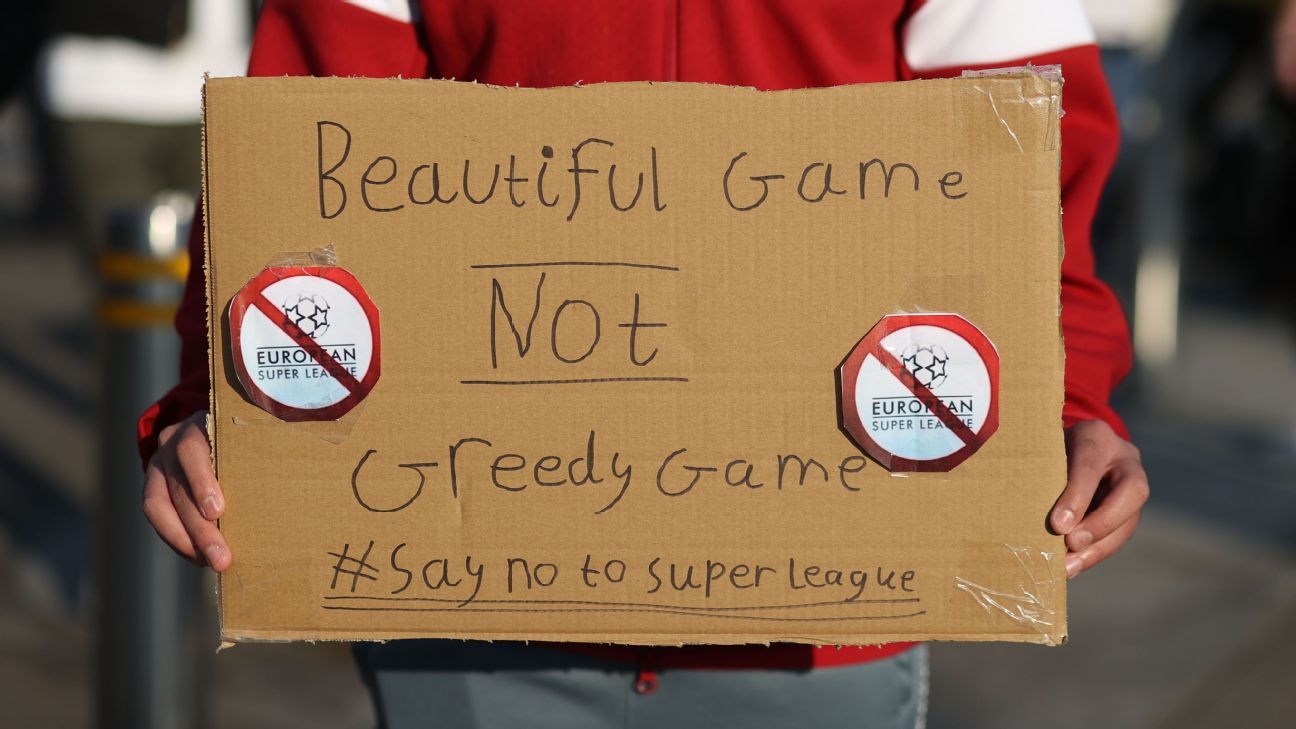
It says a lot that Silvio Berlusconi didn't really know what teams he was talking about adding when he campaigned for a European Super League in the late 1980s.
The AC Milan owner, cable television impresario and future Italian prime minister knew that the structure of the European Cup of the time -- a giant, random-draw knockout tournament with minimal impact from seeding -- was taking potential television revenue off the table. Real Madrid and Diego Maradona's Napoli were paired in the first round of the 1987-88 Cup, ensuring that one of the biggest draws in the field was guaranteed immediate elimination, while teams like Switzerland's Neuchatel Xamax, Norway's Lillestrom, Cyprus' Omonia and Poland's Gornik Zabrze all advanced over lesser competition. Portugal's Benfica would win the cup that year without beating a single team from what we would now call Europe's "Big Five" leagues.
- Marcotti, Ogden: Super League fallout: More UEFA, UCL reform?
- Olley: Premier League's 'Big Six' facing legal issues?
- Lowe: How Spain reacted to Barca, Real, Atletico split
That made little sense to the TV-minded Berlusconi. He sought a television league that could regularly feature the continent's biggest brands... whatever those were. In 1987, he named familiar teams like Spain's Barcelona and Real Madrid, West Germany's Bayern Munich and Italy's Juventus and Napoli in addition to his Milan, but he also mentioned Belgium's Anderlecht, winners of three European tournaments over the previous decade. In 1988, he and others suggested Scotland's Rangers could be added to the pool. (In case his television goals weren't clear enough, he also proposed a tournament with all previous European Cup winners that year.)
In 1989, while frowning on British clubs because of hooliganism, the Heysel ban and also decrepit stadiums, he instead proposed pursuing teams like France's Bordeaux, the Netherlands' PSV Eindhoven and Sweden's IFK Goteborg. For a super league!
Scrolling through newspaper archives from the 1980s, you find all sorts of refrains familiar to the 2020s: that money is the root of all evil, that television is ruining the beautiful game, that teams pursuing glory should be privy to more of TV's riches, and so on. (This went for both Berlusconi's Super League and, in England, the big clubs' pursuit of an arrangement that would eventually become the Premier League.)
Everyone and everything eventually chases television, and everything worth loving by millions ends up regarded first and foremost as a commodity and source of profit. That European soccer eventually went down a road including April's ruinous (and failed) Super League attempt wasn't a surprise, but what mistakes did UEFA, European soccer's governing body, actually make along the way? What could have prevented the inequality that has long threatened the sport's integrity while still allowing for the positive effects of increased TV money? And what could UEFA do differently from this point forward to avoid similar threats in the future?
Jump to: What college football did | UEFA botched the distribution of money | Imbalance = "no surprises" | Four options for UEFA
Be the SEC, not the Big 12
One of the biggest arguments in college football's great conference realignment saga of 2009-11 came over distribution of television revenue. In the lucrative SEC and Big Ten, such money was distributed evenly among members. The Big 12 Conference, however, teetered on the brink of collapse; a lot of the instability had to do with perceived unequal treatment and the fact that revenue distribution was dictated by the number of times a team appeared on television.
In 2007-08, Texas and Oklahoma, the conference's biggest brands, earned 44% more of the television pot than last-place Baylor. Missouri and Kansas each enjoyed breakthrough seasons on the gridiron (and Kansas won the basketball national title as well), but still combined to earn 13% less than UT and OU. Nebraska left for the Big Ten in 2010 and Colorado left for the Pac-12; when Texas took steps to also work with ESPN to create what would become the Longhorn Network -- the Big Ten had its own, lucrative conference-wide network, and the SEC would soon create its own with ESPN, as well -- that was the last straw for two more schools, as Texas A&M and Missouri departed for the SEC in 2011.
What impact will fan protests have on the new UCL format?
Archie Rhind-Tutt discusses German football cubs' response to the new UEFA Champions League format.
The Big 12 narrowly managed to survive this shift, plucking Texas Christian University (TCU) from the Mountain West and the geographically incongruous West Virginia from the Big East, soldiering on with 10 teams. (No, it did not change its name.) But the damaging effects were obvious. Allowing disparate treatment of teams within a given league or group encourages both inequality and instability.
Oh, and building its own network didn't make Texas better on the field, by the way. In terms of win percentage, the 2010s were the Longhorns' worst decade since the 1930s. Meanwhile, the SEC's Alabama has won six of the sport's last 12 national titles despite sharing TV revenue equally with lower-tier teams like Vanderbilt and the conference's newcomers.
The brands can still shine while allowing others to partake in television's riches. If there's one lesson UEFA could have benefited from over the last 30 years, it's that
Television, and the revenue it produces, has made soccer more beloved and appreciated than ever before. It made the sport's big brands far bigger and more recognizable, and bringing more money into the sport has led to better coaching, better fitness practices (and therefore longer player careers) and more money for players -- once they fought to be properly compensated and cared for, anyway, as has happened at some point in every professional sport.
Berlusconi wasn't wrong in some of his complaints about the European Cup format -- college basketball's massively successful NCAA tournament, after all, is rigidly seeded and assures that none of the top four teams can play each other before the semifinals at the earliest. That he and big clubs would apply pressure to change the format, and that UEFA got caught up chasing money and allowing these changes to take place, don't have to be inherently bad things.
How Barca shifted from La Liga hopefuls to title favourites
Alejandro Moreno changes his pick for La Liga yet again, now choosing Barcelona to hoist the trophy.
Where UEFA went wrong, however, is when it allowed big clubs' advantages to get hardwired into revenue distribution
The 2003-04 Champions League was one of the wackiest in memory. Pre-tournament favorites Real Madrid, Juventus, Milan and Manchester United were all ousted before the semifinals, and Jose Mourinho's Porto rolled to the title with a 3-0 final win over Monaco.
From the pot of revenue distribution, Porto made €29.98 million for its efforts. Manchester United, ousted by Porto in the round of 16, made 42% more (€42.5 million) despite playing five fewer matches. Quarterfinalist Arsenal (€43.3 million) and semifinalist Chelsea (€44 million) made even more. Sparta Prague made €9.6 million for being ousted in the same round as United. Six teams that didn't even reach the knockout rounds took home more cash than Sparta.
The culprit: the "market pool," which as of 2019-20 accounts for 15% of all revenue distribution and, according to UEFA's website, is "distributed in accordance with the proportional value of each TV market represented by clubs taking part in the UEFA Champions League (group stage onwards)." From this pool, Arsenal made over €30 million; Sparta earned €153,000. Over the 10 Champions Leagues from 2009-10 to 2018-19, Juventus made over €300 million from "market pool" distribution alone (despite missing the 2010-11 and 2011-12 tournaments!), while PSG, Barcelona, Chelsea, Real Madrid, Manchester City and Bayern Munich each made more than €200 million.
Of the 98 teams that participated in the Champions League group stage in that span, 11 teams combined to make more from this stream than the other 87.
- Stream ESPN FC Daily on ESPN+ (U.S. only)
- Don't have ESPN? Get instant access
As of 2019-20, 30% of revenue is now also distributed "on the basis of 10-year performance-based coefficient rankings" -- the same amount that's allocated for actual performance in the tournament. It's what allowed Barcelona to make €117.7 million for reaching the semifinals in 2019 while fellow semifinalist Ajax made €39 million less. (That difference then accounted for about half the transfer fee when Barca acquired Ajax star Frenkie de Jong a couple of months later.) Remove the coefficients and market pool and re-distribute the rest based solely on participation and performance, and both teams would have made around €105-110 million.
Actually, remove the coefficients and market pool from a decade's worth of Champions League payments (2009-10 to 2018-19), and you get a pretty clear picture of who this helped and hurt.
Teams that would have made far less if Champions League payments had been based solely on participation and performance, not markets or coefficients*:
1. Juventus (-€155.4 million)
2. PSG (-€102.4 million)
3. Chelsea (-€83.4 million)
4. Roma (-€75.0 million)
5. Manchester City (-€74.3 million)
Teams that would have made far more:
1. Porto (€91.8 million)
2. Shakhtar Donetsk (€60.8 million)
3. Benfica (€57.7 million)
4. Basel (€56.4 million)
5. CSKA Moscow (€47.4 million)
(* For this exercise, I took the money that was allotted to the market pool and, for 2018-19, coefficients, and re-distributed it based on the percentage of participation and performance money they made in that given tournament.)
Teams like Real Madrid, Barcelona and Bayern Munich, which indeed benefited from the market pool but also consistently performed well in the Champions League, actually should have made a smidge more than they did. But teams like Juventus (two finals appearances, but only six appearances in the knockout rounds) and PSG (zero semifinal or finals appearances until last season) did not earn their keep. And this superclub-friendly arrangement also prevented Porto (six knockout rounds, two quarterfinals) from earning anywhere close to what it should have.
Arsenal fans protest Kroenke ownership
Arsenal fans arrive in numbers at the Emirates to protest against the Kroenkes' ownership ahead of their Premier League match.
During the Super League's rise and blink-and-you-miss-it fall, we heard a lot about the value of merit. You must earn your place in your league, you must win to reap the spoils. But this is not merit; it's a combination of legacy and extortion. Whenever it was time to negotiate future distributions, big clubs leaned on the fear of a super league to ensure more money would end up in their coffers, whether they actually earned it or not. And when combined with some of the leverage teams in leagues like La Liga (Real Madrid and Barcelona) and Serie A (Juventus, AC Milan, Inter) have applied domestically to assure that their own TV deals are far better than those of their league mates, the effects are both measurable and grotesque.
EloFootball.com has produced ratings for European football dating back to the mid-1950s. In the 1990s, 35 different teams finished in the Elo top 10 in at least one season. If we assign a simple points system to the top 10 teams -- 10 points for finishing the season No. 1, nine points for No. 2, down to one point for No. 10 -- we find that the top 11 teams of the decade (Manchester United, AC Milan, Bayern Munich, Juventus, Arsenal, Barcelona, Real Madrid, Lazio, Ajax, Liverpool and Porto) accounted for 74% of all the points divvied out.
In the 2010s, only 23 teams finished in the Elo top 10 at least once, and the top 11 teams (Barcelona, Real Madrid, Bayern, Juventus, Manchester City, Paris Saint-Germain, Chelsea, Atletico Madrid, Manchester United, Borussia Dortmund and Liverpool) accounted for 92% of all points. Twenty-two different clubs made the European Cup/Champions League semifinals** at least once in the 1990s, and none did so more than four times; in the 2010s, only 17 different clubs reached the semis, and three -- Real Madrid, Bayern and Barcelona -- gobbled up 21 of 40 semifinal appearances by themselves.
(** For the tournaments of 1992-94, which featured group stages to determine finalists, this includes the teams that finished second in each group.)
A lot of the most successful clubs of the 1990s and 2010s are the same, but their dominance is far greater now. At the end of the 1990-91 season, the highest-ranked team (per EloFootball) had a rating of 2,135 points; 30 years later, Borussia Dortmund ranks 14th with 2,136. Bayern and Juve have long been regarded as dominant forces in their respective countries, but while they combined to win seven league titles in the 1990s, Juve has currently won nine in a row and Bayern is about to win its ninth in a row.
Katie Nolan: American owners learn they can't play 'U.S. game' abroad
Katie Nolan provides her key takeaways surrounding the European Super League on Highly Questionable.
Before they announced they were breaking from UEFA's grasp altogether, the Super League 12 forced more changes to the Champions League. The group stage has been expanded from six to 10 games per team -- more matches means more gate receipts and, of course, more television revenue -- while the knockout stages will include 24 teams instead of 16. Plus, while four more teams will be added to the tournament, two of these extra bids will go to non-qualifying teams with the highest 10-year coefficient rankings; now, the richest and most successful clubs can qualify even when they don't qualify.
If any actual repercussions come from the Super League escapades and more egalitarian measures can be pursued, sanding down these extra layers of super-club benefits would be a good place to start.
The distribution of money in soccer has made the sport nearly blip-proof
College football fans still rave and reminisce about the vaunted 2007 season, in which most of the sport's biggest names struggled and lesser lights like South Florida, Boston College, California, Missouri and Kansas all spent time harboring legitimate national title hopes. Getting just a little bit of proof that blips and chaos are possible goes a long way and makes fans of the Boston Colleges and Mizzous -- or, in this case, the Bolognas and Montpelliers -- of the world feel like actually valuable pieces of the ecosystem.
As the Florentino Perezes and Joan Laportas of the world are happy to tell you, people watch the brands. A Real Madrid-Manchester United Champions League final would almost certainly earn bigger ratings than Atalanta vs. RB Leipzig, no matter how much more entertaining the latter matchup might be than the former.
Super League alternatives will appear due to 'desire from owners'
Nicky Bandini and Mina Rzouki believe talk of a reformatted European Super League will return in the future.
That, however, doesn't justify the constant tilting of the playing field, especially when it comes at the expense of other clubs that could become bigger brands in a fairer environment. It doesn't justify the sort of reckless (and somewhat unsuccessful) spending that were making clubs like Perez's Real Madrid, Laporta's Barcelona and Andrea Agnelli's Juventus financially vulnerable even before the effects of the pandemic became clear. And it most certainly doesn't justify the nearly hostage-taking "for the sport to be healthy, we must be healthy" logic -- as Rory Smith put it in his newsletter last week, "Give us what we want, and we can give you what you want" -- that these men have used to justify their attempt at generating even more cash for themselves at the expense of others.
It does, however, create short-term problems that make potential long-term moves tricky. UEFA could learn from its biggest mistakes of the past 30 years to create an environment that is both healthier and more competitive, but it would require putting some big brands at further financial risk. Some moves, however, could also help to save these clubs from themselves.
Four options for UEFA when it comes to restoring some balance
Ditch the market pool and coefficient payments. Do this for all the reasons mentioned above. It increases inequality, and it is not based in present-tense merit.
Increase solidarity payments. One of the more patronizing parts of the Super League's initial statements was when it promised solidarity payments (the amount of money reserved for distribution to lower-level leagues and clubs) that were "substantially higher than those generated by the current European competition." It gave no further detail about amounts or timelines; it offered no direct justification for why a 12-club entity could properly execute the trickle-down economics model that has had an approximately zero-percent success rate in any industry (in terms of actually improving industry health or equality). It also contradicted years of campaigning to keep the percentage of Champions League and other revenue reserved for these payments as low as possible.
Why worry about ensuring that money trickles downstream when you can just send it down to begin with? UEFA's HatTrick program, a "solidarity and development program" built around investment, staff education and knowledge-sharing/resource building, is one of its more intriguing ideas. Fuller funding would only increase its odds of success.
Would a MLS-Liga MX merger fail like the Super League?
Herculez Gomez explains why he thinks a MLS-Liga MX merger would meet the same fate as the Super League.
Lower registration limits. ESPN's Gabriele Marcotti explored this idea in early-2020; while leaders of Bayern Munich and the German DFB have been attempting to push for a salary cap, you could accomplish something similar by further limiting the number of players a team can register for league play.
In the Premier League, for instance, you can register up to 25 players aged 22 and older for league play. Any limit is better than none, but the number is high enough that richer clubs end up stashing away certain players -- Manchester United's Jesse Lingard, for instance, had played under 1,000 league minutes since the start of 2019-20 before he was finally loaned to West Ham United this winter and made an immediate impact. Lowering that limit would theoretically both cut big clubs' payrolls and allow talent once deemed "worthy" of big clubs to spread a bit more throughout the ecosystem. It could benefit teams in terms of both cost and talent availability. A win-win.
Encourage creativity. Some of the logic of establishing the Super League was simple but undeniable: (a) big matches make lots more money than smaller matches, therefore (b) we should therefore play as many big matches as possible. As an ethos, that's pretty good; the execution of said idea was flawed, to say the least, but when possible it could still be followed.
In 2000, representatives from PSV Eindhoven attempted to form what they called the Atlantic League, a competition that would bring together powerhouses from lots of second-tier leagues -- the Netherlands (PSV, Ajax, Feyenoord), Portugal (Benfica, Porto), Scotland (Celtic, Rangers), Belgium (Club Brugge), etc. -- for the purpose of both increasing exposure to good competition and making lots more money. The idea re-emerged a few times through the years and, in 2003, morphed into something called the North Atlantic League Cup, but it never had the proper backing of UEFA and national leagues.
With the introduction of a third annual UEFA tournament, the Europa Conference League, something like this won't work logistically, but that doesn't mean there's not a place for creativity.
Could there be value in seeing a similar idea slotted into the late-season schedule among countries that break their top teams off into "championship groups" like Scotland, Austria, Belgium and Denmark? Should an idea like the BeNeLiga -- an oft-discussed merger of sorts between Belgium's and the Netherlands' national leagues, which would produce a rock-solid set of top-division teams -- be given more traction? And if the goal is pursuing high-quality, high-stakes, television-friendly matchups, couldn't we make more of the Champions League qualifying process?
While fans of non-Super League clubs have called for vengeance and punishment against the clubs that sought to enrich themselves seemingly at the expense of everyone else, it doesn't appear UEFA is going to do anything particularly drastic. But it really doesn't have to. More subtle moves like the ones above could prove UEFA has learned from some of its early mistakes and could also create long-term, parity-friendly effects. It might also start getting Porto some of the damn money that it's owed.
Toronto's new wing wizard Soteldo leaves Santos at a crossroads
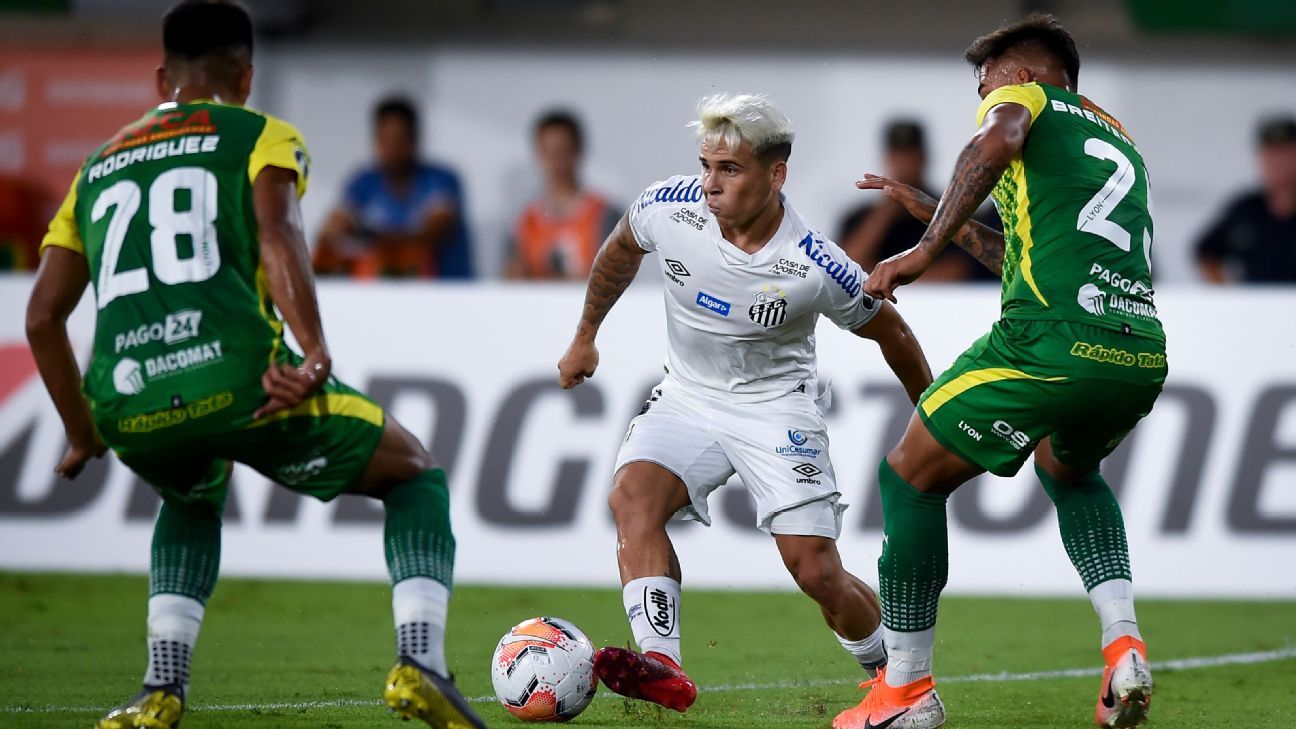
Yeferson Soteldo is a little man who promises to make a big impression in Major League Soccer after signing for Toronto FC from Santos.
The 5-foot-2 Venezuela international swaps Brazil for Canada after signing a contract with Toronto that runs through 2025, and his new club gains a player able to operate across the attacking line but who is at his best on the left wing.
- Stream ESPN FC Daily on ESPN+ (U.S. only)
- ESPN+ viewer's guide: Bundesliga, Serie A, MLS, FA Cup and more
Soteldo is right-footed but more than adequate on his left. With his low centre of gravity and his acceleration, it means that he can put huge doubts into the mind of the opposing right-back. He can cut inside and look to shoot at goal or, like a classic winger, he can go outside and dink in a well-flighted cross. Either way he is a threat, and Santos fans will be sorry to see him go after two excellent years representing Pele's old club.
The winger on the other flank for Santos, Marinho, was recently chosen as the best player in the Americas in the annual poll organised by Uruguayan newspaper El Pais. He, though, is essentially a one-trick pony. It is a good trick, cutting inside on to his left foot and unleashing what have become known as his "mini missiles," but often it was the work of Soteldo on the left that created the space for Marinho on the right.
The Venezuelan hit the ground running in 2019, becoming part of the adventurous team built by Argentine coach Jorge Sampaoli that finished second in the Brazilian Championship. The next campaign brought another creditable second place, with Santos remarkably fighting their way through to the final of the Copa Libertadores where they lost 1-0 to local rivals Palmeiras.
His performance that day, though, leaves a question mark hanging. Soteldo had a very disappointing game. A doubt about him is whether he has the strength of personality to perform on the big occasions -- one reason, apart from his height, that may have put off European buyers. It also will be interesting to see how he copes with the comparisons, in both performance and stature, to former Toronto star Sebastian Giovinco.
And if that was not enough, he is also one of the players carrying the expectation of the Venezuelan footballing public that they might finally see their team play in a World Cup. Soteldo is a key member of their breakthrough generation, the side that reached the final of the 2017 Under-20 World Cup. Despite a disappointing start on the road to Qatar, a win over Chile in the last round has rekindled hopes of making the cut. With the amount of international football scheduled in the next few months, Toronto supporters are going to have to grow accustomed to sharing him with La Vinotinto.
Santos fans are sad to lose Soteldo. The club's directors, though, may well have mixed feelings, for a motive that is not the fault of the player. Santos recruited him from Chile. The relatively modest Huachipato signed Soteldo from Zamora in his native Venezuela, used him for a while and then sent him on loan to Santiago giants Universidad de Chile in order to put him in the shop window. The player, then, was signed from Huachipato. But, diving ever deeper into financial turmoil, Santos were unable to pay the fee. Understandably, Huachipato complained, and FIFA ended up banning Santos from signing any new players. Moving him on means that the famous Brazilian club may have lost a fine player, but they should regain the right to sign others.
This backdrop makes it nothing less than extraordinary that Santos battled through to reach the final of the last Copa Libertadores. Living with the aftermath, though, was never going to be easy. Finishing as runners-up in South America's premier club competition set the expectations for this season at a level that the club have little hope of meeting. The youth work at Santos is excellent, and they can call on some highly promising youngsters. But they do not have the resources to deal successfully with the current fixture pile-up, while fans and media find it hard to cut them any slack.
In little more than two years with Santos, Soteldo worked with four coaches. The last of those, the Argentine Ariel Holan, resigned after just 12 games in charge. Fresh from winning the Chilean title with Universidad Catolica, Holan had signed a three-year contract, but he was losing Soteldo, finding Marinho hard to manage and was apparently perturbed by having disgruntled fans set off fireworks outside his house. Santos now need a new coach, and without Soteldo, they need a new No. 10. Their loss is Toronto's gain.
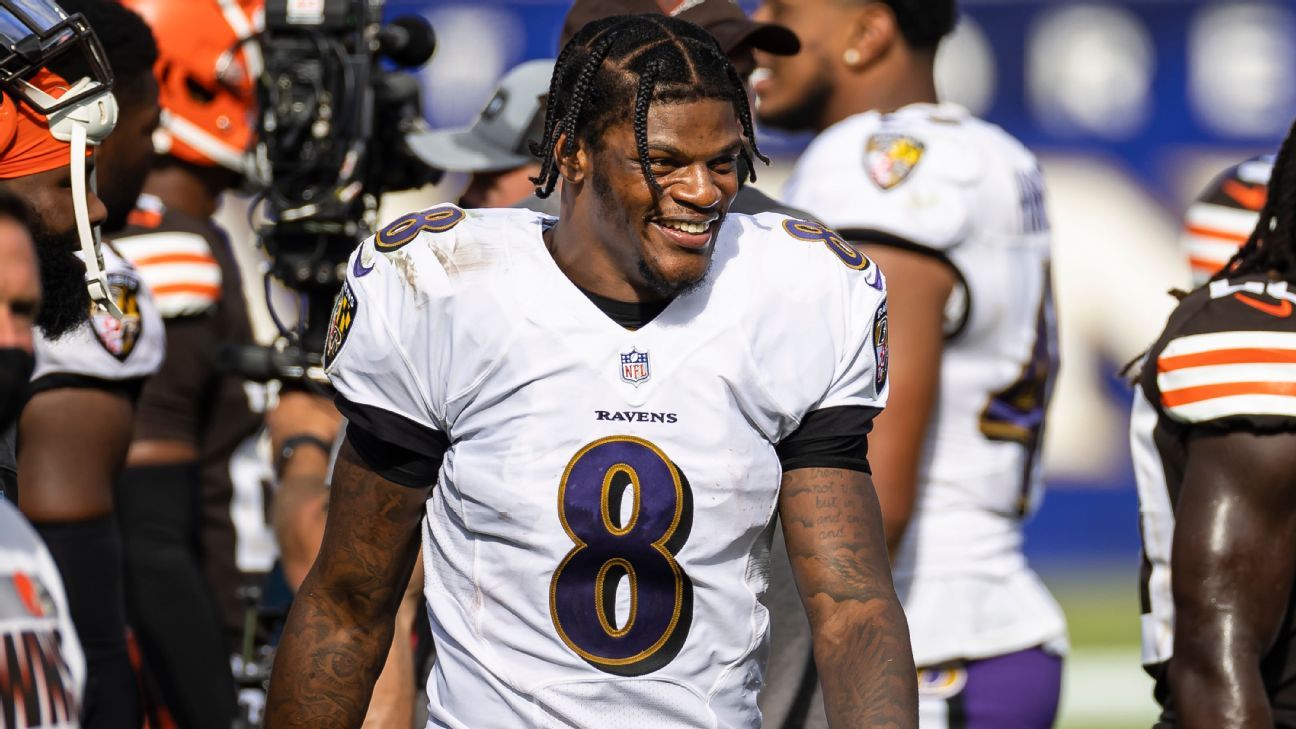
For most of his NFL career, Lamar Jackson has made people pay for thinking he wasn't a quarterback.
But on Wednesday, Jackson actually paid one lucky passerby $100 after the man thought Jackson was a wide receiver and then an offensive lineman.
In the exchange, which Jackson shared on Instagram, the Baltimore Ravens quarterback playfully offered the man money if he could recognize the 2019 NFL MVP.
"I know you play football," the man said.
What position?
When the man guessed wide receiver, Jackson responded, "You might not get this $100."
The man later guessed the 212-pound Jackson might be an offensive lineman.
Being a good sport, Jackson gave a $100 bill to the man and hugged him.
Moments later, the man ran back and exclaimed, "Lamar Jackson!"
"Yeah, that's me," Jackson said matter-of-factly.
After the video was shared on social media, Jackson said jokingly: "If he would've said RB, I would've kept my $100."
Jackson has become one of the most popular players in the NFL. He ranked No. 3 in the end-of-year NFL Players Association player sales list of licensed merchandise, trailing only Tom Brady and Patrick Mahomes.
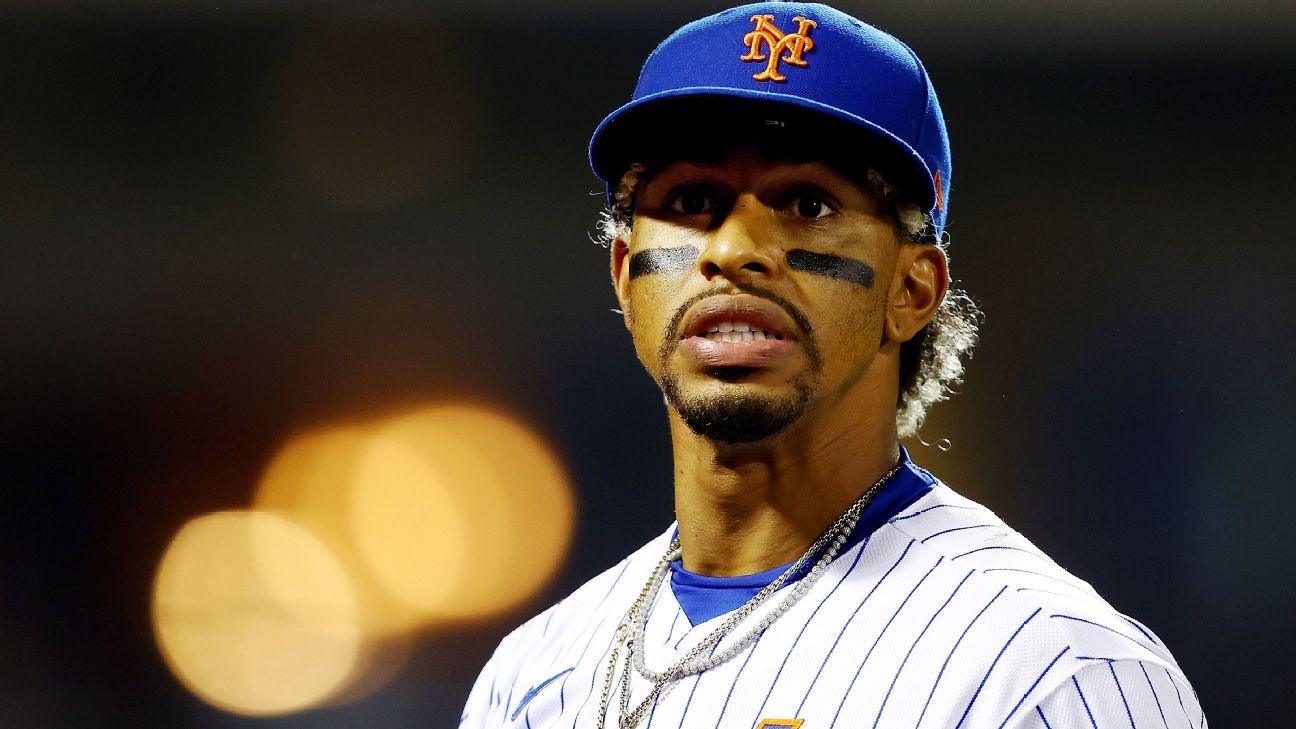
NEW YORK -- Francisco Lindor's contract negotiations with the Mets seemed pretty smooth. His swing certainly has not.
The $341 million star shortstop entered Wednesday batting .212 with three RBIs through 18 games with his new team and started hearing boos Tuesday night at Citi Field after grounding out late in a 2-1 loss to the Boston Red Sox.
Honeymoon's over. Welcome to New York.
"It's interesting and it's funny, and it sucks," Lindor said. "It doesn't feel right, for sure. Interesting because it's the first time that it happened in my career. And funny because I'm getting booed and people think I'm going to go home and just think, oh, why am I getting booed? I get it. They're booing because there's no results. That's it.
"They expect results, I expect results and I get it, you know? It's part of the job. People expect results, and they're booing because there are no results. I just hope they cheer and jump on the field when I start hitting home runs and start helping the team on a daily basis a lot more than I'm doing right now."
The four-time All-Star and two-time Gold Glove winner was acquired in a blockbuster trade with the Cleveland Indians in January, giving the Mets one of baseball's brightest stars. New York also received pitcher Carlos Carrasco, who is sidelined with an injury, in exchange for young infielders Andres Gimenez and Amed Rosario, plus two minor league prospects.
The deal generated excitement among Mets fans eager to see the team return to the playoffs for the first time since 2016. Lindor could have become a free agent after this season, but new owner Steve Cohen shelled out $341 million to sign the switch-hitter to a 10-year contract that begins in 2022.
Lindor, already guaranteed $22.3 million for this season, agreed to the long-term deal on the eve of Opening Day, but needless to say he's not off to the start he envisioned in New York. Going into Wednesday night's game against the Red Sox, he had one home run, two extra-base hits and a paltry .593 OPS in 79 plate appearances as the Mets opened 9-9.
Not what was expected from a dynamic player who owns a .284 career batting average with 139 homers, 99 stolen bases and an .828 OPS in seven major league seasons.
"We all go through adversity at some point in the year, and I've got to embrace it," said Lindor, who batted .258 with a .750 OPS during a 2020 season shortened to 60 games by the coronavirus pandemic. "It's plain and simple: I've got to be better."
Lindor walked his first time up Wednesday but struck out in his next two trips and was booed again by the limited-capacity crowd in the Mets' 1-0 loss.
"I honestly feel good," Lindor said before the game. "Yeah, there's times where I feel like I should have got a hit that at-bat with that pitch and I just missed it. It's part of the game. I'm trying. I'm trying as hard as I can to be successful and help the team win.
"Yesterday there was a couple of pitches that were balls that I chased. I honestly feel like that was either the first or the second (time) in the past couple days that I actually started chasing. I feel like I was having quality at-bats the whole entire time."
Mets manager Luis Rojas said Lindor arrived at the ballpark very early for extra practice Wednesday and has been working with hitting coach Chili Davis to get out of his funk.
"I know exactly what I'm doing. That's why I'm not frustrated in a sense where I'm going home or after every at-bat I'm constantly thinking and thinking and thinking, because I know what's happening," Lindor said. "I don't feel like I'm in a slump. I feel like I have had quality at-bats. I feel like I haven't put the best swing on the baseball these past couple of games, but I don't feel like I'm in a slump. A slump for me is when I'm 0-for-35, 0-for-30, that for me is a slump."
Rojas said Davis was looking to get Lindor back to incorporating some drills he used previously in Cleveland, but Lindor said he's been doing "the exact same thing" he's been doing his entire career.
"It's going to work," said Lindor, who remained upbeat as usual during his videoconference with reporters Wednesday and even chuckled and smiled several times.
"I came to New York to win. I want to win. I will do whatever it takes to win. And right now, if fans and people think I'm not doing my part to win and they want to see results, the results will come for sure. They will come."
Lindor did say he's still trying to adjust to the National League after spending his first six seasons in the American League.
"They pitch a little differently, but at the end of the day it's the same ball and the mound is the same distance, and the bases are (in) the same places," he explained. "But yeah, it's starting to get used to how they pitch, how they do things, how they attack hitters. I've just got to be better, to be honest. I've got to be better, and I will be better. I'm looking forward to continuing to learn the league, for sure."
Asked if he had a message for Mets fans about staying patient, Lindor laughed.
"To the fans, you guys are fun," he said. "I'll give you guys the results. And to me the result is winning, and that's all I want. I didn't come to New York to hit .350 and win MVP. I came to New York to win and I'm going to do whatever it takes to win."
Harper 'all good' after 96.9 mph heater to face
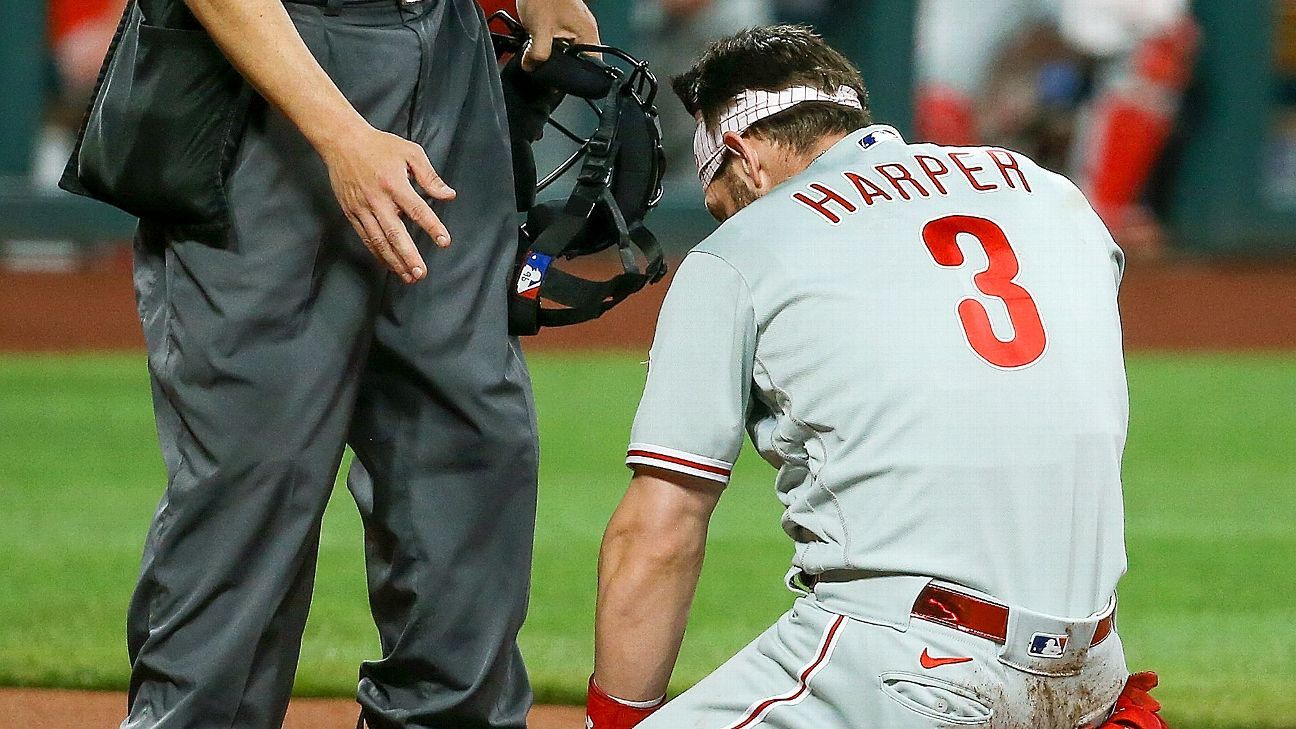
Philadelphia Phillies star Bryce Harper said he was "all good" after leaving Wednesday night's game against the Cardinals because he was hit in the face by a 96.9 mph fastball from reliever Genesis Cabrera.
Harper walked off the field in St. Louis on his own accord in the sixth inning, displaying some blood on the left side of his nose.
In a video he posted to social media after Philadelphia's 5-3 win, Harper said his scans "came back good."
"Everything feels good," he said. "Everything came back good -- CT, all that kind of stuff. So, face is still there. We're all good. See you guys soon."
The biggest W tonight. ?
(via @bryceharper3 on IG) pic.twitter.com/WYH1wC8MnK
— Philadelphia Phillies (@Phillies) April 29, 2021
After hitting Harper with his first pitch of the inning, Cabrera then hit the next batter, Didi Gregorius, leading to warnings for both benches. Phillies manager Joe Girardi came out of the dugout to complain to plate umpire Chris Segal and got kicked out of the game.
Matt Joyce was a pinch runner for Harper, and Gregorius remained in the game. Cabrera allowed an RBI single to Andrew McCutchen in the next at-bat before being relieved. Per MLB rules, Cabrera had to face one more hitter to meet the minimum 3-batter threshold before Cardinals manager Mike Shildt was able to pull him.
"[Cabrera] should be thrown out. I understand why they give the warnings but if a guy hits a guy in the face and a guy in the ribs, with two pitches, he's gotta go, right?" Girardi said. "If you're really protecting players, he's got to go. Just for the safety of the players."
Harper grounded out and struck out in his first two at-bats. Gregorius doubled and struck out in his two at-bats.
The Associated Press contributed to this report.
DeGrom ties Ryan's K's mark over 5 starts in loss
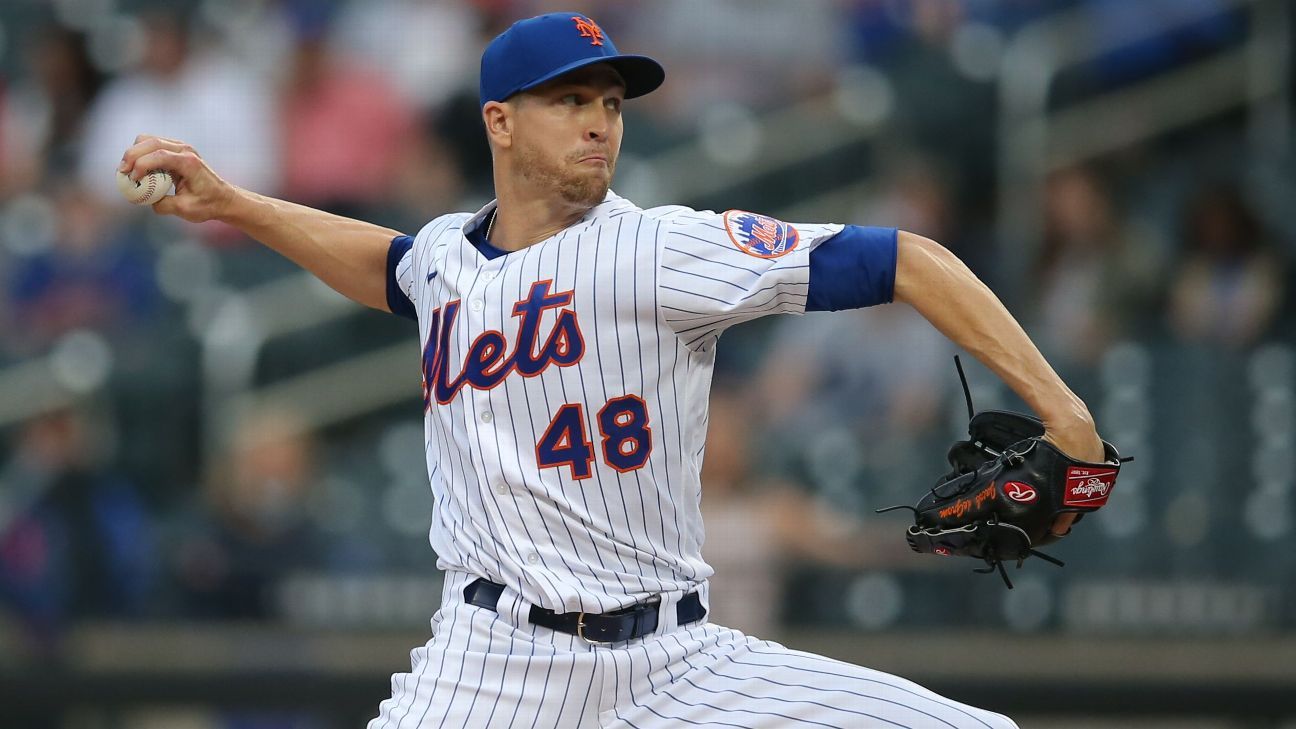
Mets right-hander Jacob deGrom tied Nolan Ryan's record for most strikeouts through a pitcher's first five starts of a season, finishing Wednesday night's start with nine strikeouts over six innings to run his five-game total to 59. But deGrom did so in a losing cause, as New York fell 1-0 to the Boston Red Sox at Citi Field.
It was deGrom's 33rd career start, and third in 2021, in which he allowed one run or fewer and failed to pick up the win, most in the majors since he made his debut in 2014. Julio Teheran has the second-most such starts over that time frame with 25.
DeGrom has made 81 career starts of six-plus innings in which he has allowed no more than one run, but only 48 of those resulted in wins (59%). The MLB average win rate over the past five seasons when pitching at least six innings with one or no runs is 69%.
DeGrom said the lack of run support wasn't on his mind Wednesday, saying he was "more disappointed that I wasn't able to make pitches" in the second inning, when he allowed the game's only run after doubles by Xander Bogaerts and Christian Vazquez.
"Everybody's out there giving 100 percent. Nobody wants to get out," deGrom said of the Mets' offense. "Those guys try to put together the best at-bats, I try to throw the ball to the spot for that pitch. They're competing. Sometimes you just have to tip your cap to the other team, and they did a nice job keeping our guys off-balance."
Manager Luis Rojas also threw his support behind his offense.
"We have nothing but trust in our hitters, because we know they can hit," Rojas said. "We know what they've done in the past. You expect that to happen soon, but it's something that we need to go and turn around right now."
After striking out 14, 14 and 15 batters in his previous three starts, deGrom was a little less dominant Wednesday night. Opposing starter Nick Pivetta even battled him for a 10-pitch at-bat, the most pitches deGrom has thrown to a pitcher and the most he has thrown to a batter this season. Still, deGrom has fanned 48.0% of the batters he has faced this season.
DeGrom finishes April with a 0.51 ERA. It's the 279th instance since earned runs became an official statistic in 1913 in which a pitcher had at least 55 strikeouts in one month, but deGrom ERA's is the lowest of the 279, beating Pedro Martinez's 0.64 ERA from July 2002.
In 1978, Ryan began his season with the California Angels with strikeout totals of 13, 12, 8, 15 and 11, finishing with 59 over 41 innings. Ryan also walked 25 batters, whereas deGrom walked four.
Ryan also faced some hard-luck run support, however. He had a 1.98 ERA in his five starts but won just one game, as he had a six-inning outing and a 10-inning outing in which he allowed no runs but received a no-decision.
The all-time record for strikeouts over any five-game stretch is Martinez's 72 in late 1999, when he recorded totals of 15, 11, 15, 17 and 14. Those five starts were bookended by games of 11 and then 12 and 12, giving Martinez a remarkable eight-game stretch of 107 K's over 62 innings.












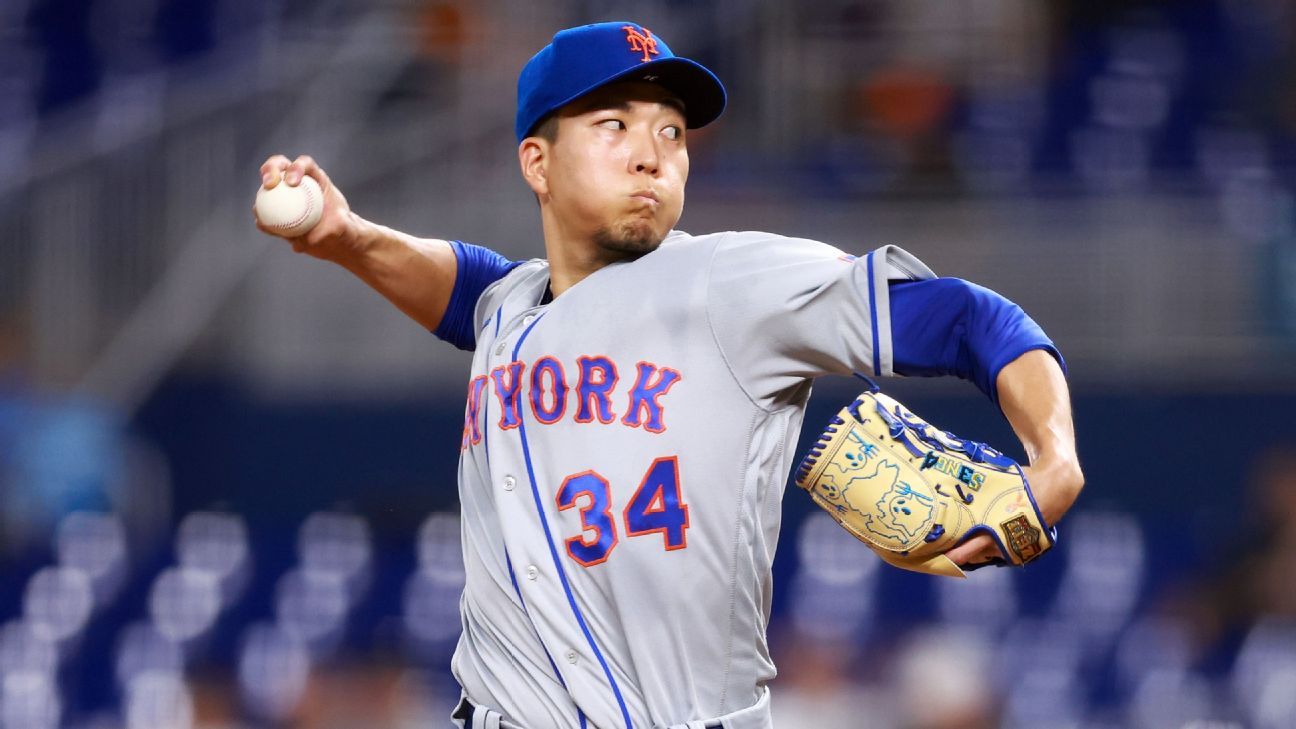


 Phone: (800) 737. 6040
Phone: (800) 737. 6040 Fax: (800) 825 5558
Fax: (800) 825 5558 Website:
Website:  Email:
Email: 






